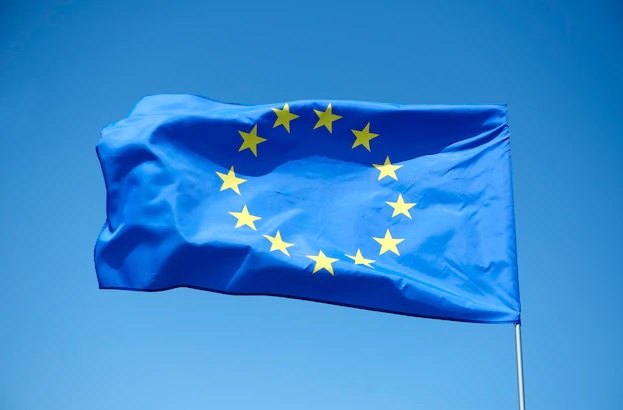Cooperation and dialogue are essential tools to ensure that the effects of the internationalization of the European Green Deal do not impact the competitiveness of Brazilian agribusiness, since the rules were based solely on the reality of the European Union, that is, on agriculture in the temperate world, which is quite different from agriculture in a tropical country.
“The world needs cooperation and not sanctions, especially in times of food insecurity, armed conflict and significant changes in global trade,” said Luiz Carlos Corrêa Carvalho, president of the Brazilian Agribusiness Association (Abag), during the Agro Forum: Brazil as a Protagonist, held by the entity on Tuesday (31).
“The European Union has an advanced democratic system, but it realized that it will not be able to meet the decarbonization goals alone, which is why it included the production chains. However, there is a great distortion of reality between the temperate world and the tropical world, which needs to be discussed. Furthermore, the unilateral rules imposed clash with the principles of multilateralism,” he added.
Carvalho, moderator of the first panel “What is the Green Deal and what challenges it can bring us”, analyzed that the rules do not address the opening of the European market by 2050 and disregard the use of biomass for bioeconomy solutions. “We realize that the focus is on prevention and protection, even at a time of food instability in the world”, he added.
Another point is that the Anti-Deforestation Law does not address the issue of legal or illegal deforestation, treats publicly and privately held companies in the same way, and does not clarify how the issue of sensitive products will be proven.
He also said that the United States, which is also developing its green program, sought to discuss these items with other countries through a questionnaire.
During the panel, Ingo Plöger, vice president and coordinator of the International Relations Committee of ABAG, gave a brief history of the creation of the Green Deal and its goals.
He assessed that the European Union has brought a new international agenda: a climate proposal, but he considered that “the biggest mistake was to internationalize concepts that are good for EU countries, but are not necessarily good for the rest of the planet. It is an excellent plan from an internal point of view. They are transparent, citing the risks and measures to reduce them”. In this sense, Brazil has been working to ensure that the European Union, institutions and producers see that the Brazilian agricultural structure is sustainable. According to Elias Antonio de Luna e Almeida Santos, Minister-Counselor and Head of the Economic and Commercial Sector of the Brazilian Mission to the European Union, the country has expressed its concern about the unilateral nature of the measures. He considered that in order to improve the narrative of Brazilian agriculture, it is necessary to show the results of the reduction of deforestation. “Our speech has highlighted the Brazilian reality, in which we share the objectives of sustainable development and environmental preservation. However, the means to achieve these goals do not need to be the same for everyone, due to the particularities of each country and region”. Sueme Mori, director of International Relations for the Brazilian Agriculture and Livestock Confederation (CNA), recalled at the Agro Forum: Brazil as a Protagonist that the principle of shared but differentiated responsibilities is important because it shows the differences between countries, which have different laws. In Mori’s opinion, the European Green Deal could have an impact on Brazil, because if the country is classified as high risk, the importer will change suppliers, since it is they (the importer) who bear all the costs. However, after a meeting with representatives of the European Union last week, she commented that there is a window of opportunity for dialogue, so that the national agricultural sector can present its proposals to comply with the established rules. For Ingo Melchers, director of the Brazil-Germany Agropolitical Dialogue (APD), the decarbonization of the European and global economy is a path of no return and the current major agenda. Therefore, the Green Deal aims to meet not only this objective, but also a demand from European society that no longer wants to contribute to deforestation. “This was the reaction of European legislators to society’s demands.” In his opinion, an important issue is the bioeconomy, as a vector for innovation, development and technological exchange. Regarding European voters, Plöger considered the increased costs of the changes that will be necessary to comply with the Green Deal, which will increase the prices of products that will be paid by European citizens. “The question is whether all this will result in a significant reduction in deforestation, because 90% of products exported from Brazil to the European Union are already certified. If this does not happen, citizens will realize that they have paid a high price for a policy that is not sustainable ineffective”.
In the second panel “The effects and risks for the Brazilian economy and agribusiness” of the Agro Forum: Protagonist Brazil, Francisco Turra, former Minister of Agriculture and president of the Advisory Board of the Brazilian Animal Protein Association (ABPA), stated that there will be a dialogue to build new alternatives, since the international discussion is focused on world hunger. “Brazil needs to explain to the world that we know how to produce and do so sustainably. Therefore, transparency is the best strategy”, he explained.
In this area, Túlio Dias, Sustainability Director at Agropalma, commented on the new georeferencing and geolocation technologies that can act in the fight against illegal deforestation, being an important instrument for Brazilian production chains. “For the Brazilian narrative to be positive and consistent, it needs to be accompanied by clear social and environmental positions, which means that reducing deforestation rates becomes a good communication asset, contributing to improving our position at the negotiating table,” he explained.
A concern for the palm oil sector and other production chains is that if the European policy is implemented, small and medium-sized producers will be the most impacted.
“Due to their lower capacity for strategic management, engagement with direct customers, language and communication difficulties, and lower investment capacity for adjustments, they will be more exposed to being left out of important production chains,” says Dias.
Rodrigo Lima, managing partner of Agroicone and consultant to the Brazilian Association of Meat Exporting Industries (Abiec), defended efficient production in livestock farming that reduces environmental impacts.
He mentioned, for example, the ABC+ Plan’s goal of restoring 30 million degraded pastures, as well as integration systems with the iLPF (Crop-Livestock-Forest Integration). “Agriculture that does not restore degraded areas becomes unproductive,” he pointed out. He also emphasized the importance of innovation and technology for the advancement of agribusiness.
Source: Canal Rural

